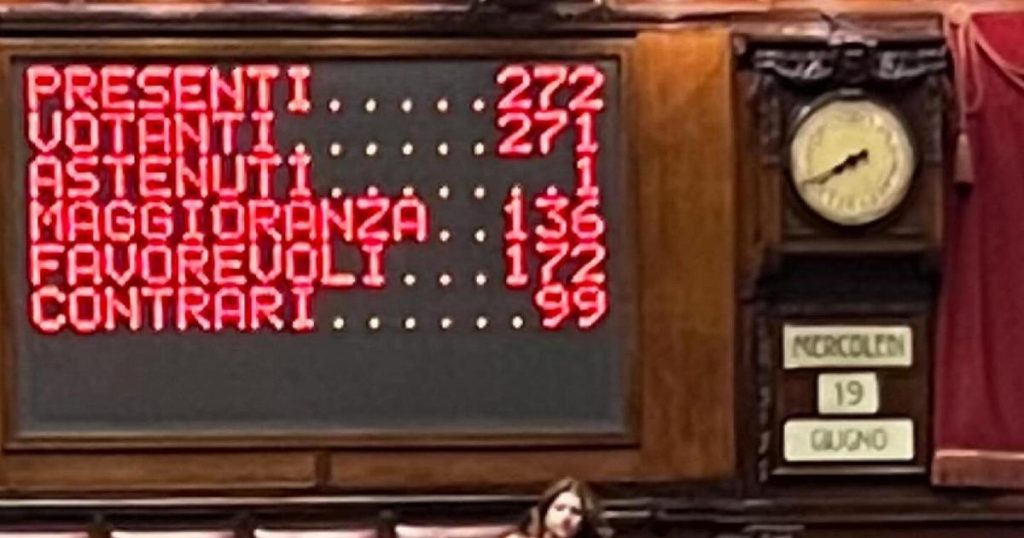The sprint started shortly after midnight when the majority gave the green light to the non-stop session: continuous work, votes without breaks until the final approval. It came almost eight hours later, with the definitive approval in the Chamber of the differential autonomy. The reform passed with 172 yes votes, but without the votes of the three Calabrian deputies from Forza Italia. The opposition displayed various reactions in the chamber, with one side applauding and the other side shouting “shame.” The reform was met with mixed reactions, with the president of the council, Giorgia Meloni, celebrating the increased autonomy as a step forward in building a stronger and fairer Italy.
The League celebrated the approval of the autonomy reform, with the group posing in the courtyard of the Chamber with the reform’s father, Minister Roberto Calderoli, waving regional flags. Secretary Matteo Salvini heralded the day as historic, expressing excitement and pride in the country’s progress. However, cracks were visible within the majority, with Forza Italia having the lowest participation rate in the vote among the center-right groups. The opposition, fresh from protesting in Rome against the reforms, announced a petition for a referendum to repeal the autonomy reform, with various opposition parties coming together to oppose the changes.
The economic repercussions of the autonomy reform were also brought into question, with the Pd group in the Senate calling for the Minister of Economy Giancarlo Giorgetti to explain the future financial implications in light of the law taking effect. The opposition politicians’ attempts to delay the voting process with literary references fell flat as the reform was ultimately approved. Former Prime Minister Giuseppe Conte condemned the divisive nature of the law, stating that it would worsen conditions in the southern regions and vowing to continue resisting these changes both in parliament and on the streets.
Despite the approval of the autonomy reform, criticism was voiced by various figures, including Cardinal Matteo Zuppi and Vatican Secretary of State Pietro Parolin, who expressed concerns about potential imbalances caused by the differential autonomy. The regional governors Luca Zaia and Attilio Fontana expressed their joy at the passage of the law, hailing it as a historic moment for the country. They praised the process of autonomy as a step towards greater democratic respect and administration, with the aim of reducing disparities and bringing institutions closer to the citizens.
The regional governors’ enthusiasm was not shared by all, with the President of Calabria, Roberto Occhiuto, expressing reservations about the law’s potential impact on the political landscape. Governor Vincenzo De Luca of Campania criticized the rushed approval process, cautioning that the autonomy reform posed a risk to the country rather than making it stronger or fairer. The President of the Basilicata region, Vito Bardi, echoed these concerns, highlighting the need for balanced territorial interventions and improvements in infrastructure disparities to accompany the differential autonomy.


